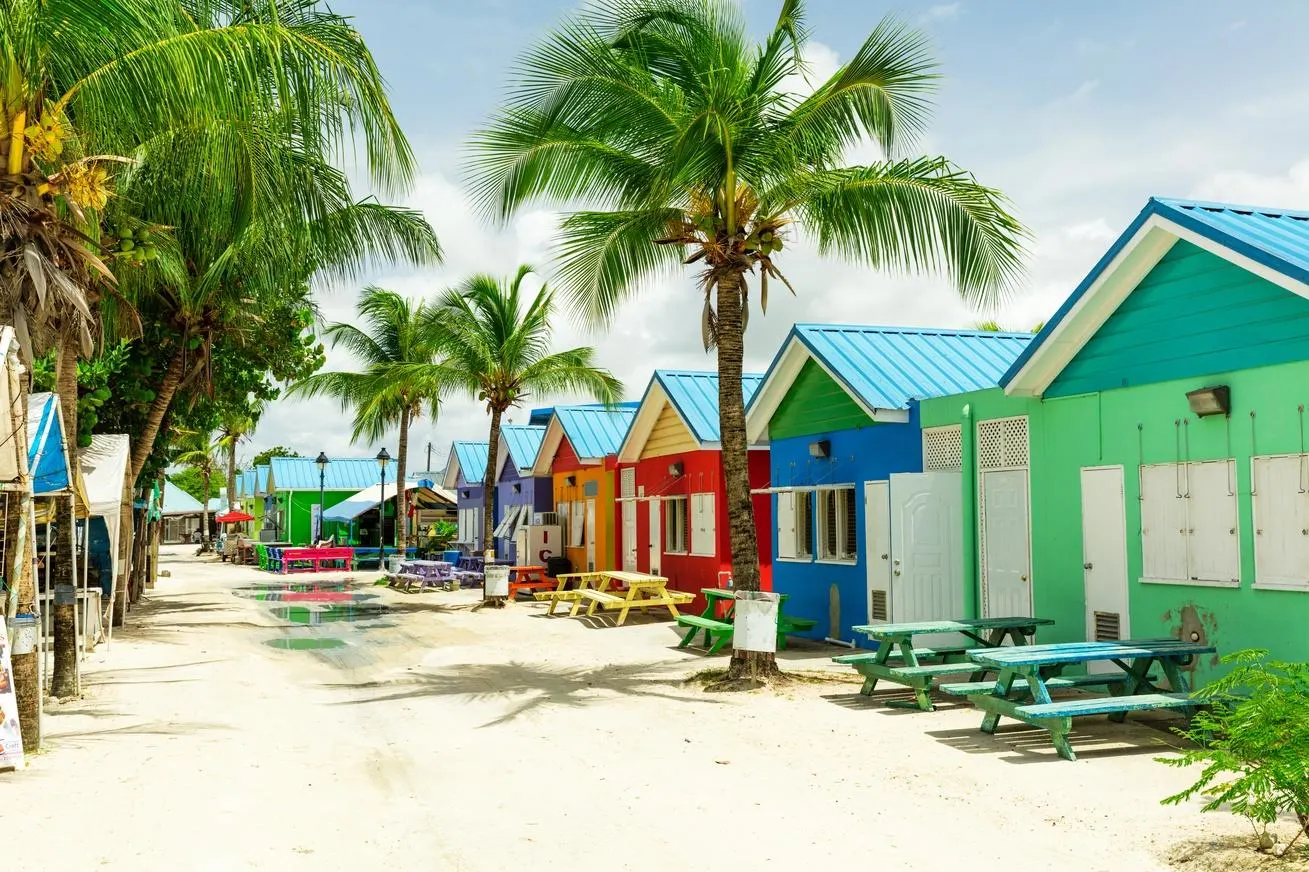Barbados, Belize, Dominica, And St. Vincent Sign Historic Pact Allowing Citizens To Live And Work Freely Across Borders
By Contributor,Richard Fowler,Rob Kim
Copyright forbes

Colourful houses on the tropical island of Barbados in the Caribbean
In a major step toward establishing a single economic market across the Caribbean, four nations have signed a landmark agreement creating an EU-style freedom-of-movement pact for their citizens.
Barbados, Belize, Dominica, and St. Vincent and the Grenadines have agreed to a “full free movement” arrangement that allows nationals from each country to indefinitely live, work, and reside in any of the other countries without a work or residency permit.
Regional leaders say the deal will strengthen unity across the region and help harness the Caribbean’s growing economic power.
“This is not a one-way arrangement; this is a regional road, and it runs both ways,” Barbados Prime Minister Mia Mottley said in an Instagram post announcing the agreement. “We are proud to be one of the four pioneering countries in this journey, and we know that future generations will be inspired by our tenacity and commitment to progress.”
NEW YORK, NEW YORK – SEPTEMBER 25: Prime Minister of Barbados, Mia Mottley speaks onstage during Global Citizen NOW: Health and Climate Financing Sessions – The Urgent Need for Action at Guastavino’s on September 25, 2024 in New York City. (Photo by Rob Kim/Getty Images for Global Citizen)
Getty Images for Global Citizen
Effective October 1, the pact also opens access to emergency and primary medical care, as well as primary and secondary education, for citizens of all participating nations.
This agreement comes as the Trump administration intensifies its stance against drug trafficking and several regional governments criticize heightened U.S. military activity in the Caribbean Sea. It also coincides with a broader global moment for Black identity, as more Black professionals explore relocation outside the U.S. and Europe due to rising racial animus and government efforts to roll back long-standing civil rights protections.
MORE FOR YOU
“We cannot speak about integration, we cannot speak about solidarity, and we cannot speak about coming together if we cannot move freely,”said Roosevelt Skerrit, prime minister of Dominica in a statement. “I’m hoping that the rest of us within the Caribbean community can join the four of us who have taken this step to move forward with this and that we have a full free movement of CARICOM nationals within our space.”
LOS ANGELES, CALIFORNIA – JUNE 08: Roosevelt Skerrit, the Prime Minister of the Commonwealth of Dominica arrives to the Microsoft Theater for the opening ceremonies of the IX Summit of the Americas on June 08, 2022 in Los Angeles, California. Leaders from North, Central and South America will travel to Los Angeles for the summit to discuss issues such as trade and migration. The United States is hosting the summit for the first time since 1994, when it took place in Miami. (Photo by Anna Moneymaker/Getty Images)
Getty Images
For CARICOM—the Caribbean Community—this new pact represents more than freer travel. Leaders believe it will strengthen regional cooperation and help slow the ongoing “brain drain” that has seen skilled professionals migrate to higher-paying opportunities in the United States, the United Kingdom, and Canada.
The problem is especially acute in healthcare and education, where Caribbean nurses, doctors, and K–12 educators have become highly sought-after recruits for U.S. hospitals and school districts facing severe workforce shortages. According to the Pan American Health Organization, the primary drivers of this migration are higher wages and better living and working conditions abroad.
Dr. Andy St. Hilaire, chief medical officer of CARICOM, underscored the urgency: “The migration of healthcare workers significantly impacts our health systems’ ability to provide quality and timely healthcare services. Therefore, policies to train and retain healthcare workers in the region must be creative, robust, and responsive to the needs of our personnel.”
Founded in 1973 through the Treaty of Chaguaramas, CARICOM today has 15 member states united by a mission to promote economic development, growth, and regional cooperation. The organization also mediates disputes, implements programs to support less-developed member states, and operates as a framework for a regional single market. In 2005, in a symbolic rejection of lingering colonial influence—where many Caribbean nations’ final judicial appeals once landed in the British Privy Council—CARICOM established the Caribbean Court of Justice.
While not all member states have adopted the Caribbean Court of Justice or joined the new free movement pact, Jamaican Prime Minister Andrew Holness hailed the development as a sign of growing regional unity.
“Jamaica congratulates these four member states on their implementation of the Full Free Movement of their nationals,” Holness, current CARICOM chairman, said in a statement. “Their decision under the Enhanced Cooperation Protocol to the Revised Treaty of Chaguaramas is a critical step toward advancing the goal of the CARICOM Single Market and Economy.”
The CSME is CARICOM’s flagship project—an ambitious plan to create a unified economic space that allows goods, services, people, and capital to move freely across the region. While full implementation remains a work in progress, the new agreement between these four nations is a significant step forward.
And though it may take time to realize a truly integrated Caribbean economy and navigate the politics that come with it, this latest move signals clear momentum—and a renewed commitment to regional progress.
Editorial StandardsReprints & Permissions